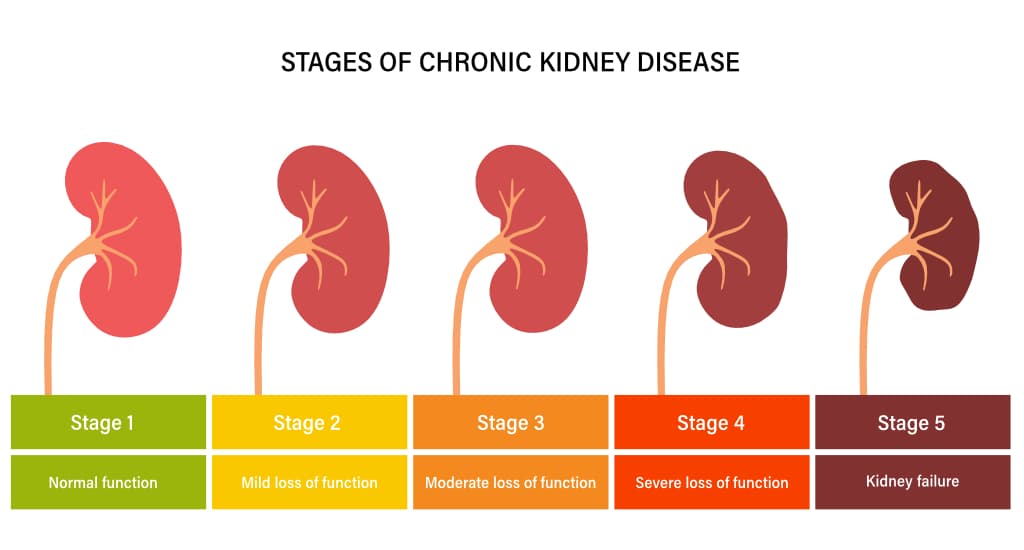Chronic Kidney Disease
What is Chronic Kidney Disease?
End-stage renal disease patients undergo kidney transplantation to extend and enhance their lives. Both harvesting and transplanting can be done by open or laparoscopic surgery.

Chronic kidney disease (CKD) is a chronic illness with no treatment and a high rate of morbidity and death that affects the overall adult population, particularly those with diabetes and hypertension. Non-pharmacological treatments (e.g., dietary and lifestyle changes) as well as chronic kidney disease-targeted and renal disease-specific pharmaceutical therapies can help to improve outcomes. A plant-based, low-protein, low-salt diet may aid to reduce glomerular hyperfiltration and prolong renal function, perhaps while simultaneously affecting acid-base homeostasis and the gut flora. Lower albuminuria levels are linked to worse renal and cardiovascular outcomes. When a false-positive reduced estimated glomerular filtration rate determined from serum creatinine is suspected, serum cystatin C is a valuable biomarker. Albuminuria is now included in the categorization system for chronic kidney disease, and new guidelines expand on disease detection, follow-up frequency, and nephrology referral recommendations. CKD is defined as a defective kidney structure or function that lasts longer than three months and has health consequences. Albuminuria, aberrant urine sediments, abnormal renal imaging findings, serum electrolyte or acid-base imbalances, and a glomerular filtration rate (GFR) of less than 60 mL per minute per 1.73 m2 are all indicators. Early identification is crucial for beginning appropriate therapeutic measures, reducing nephrotoxin exposure, avoiding further GFR decline, and planning for renal replacement therapy since CKD can develop to progressive renal failure, end-stage renal disease, and even mortality.
